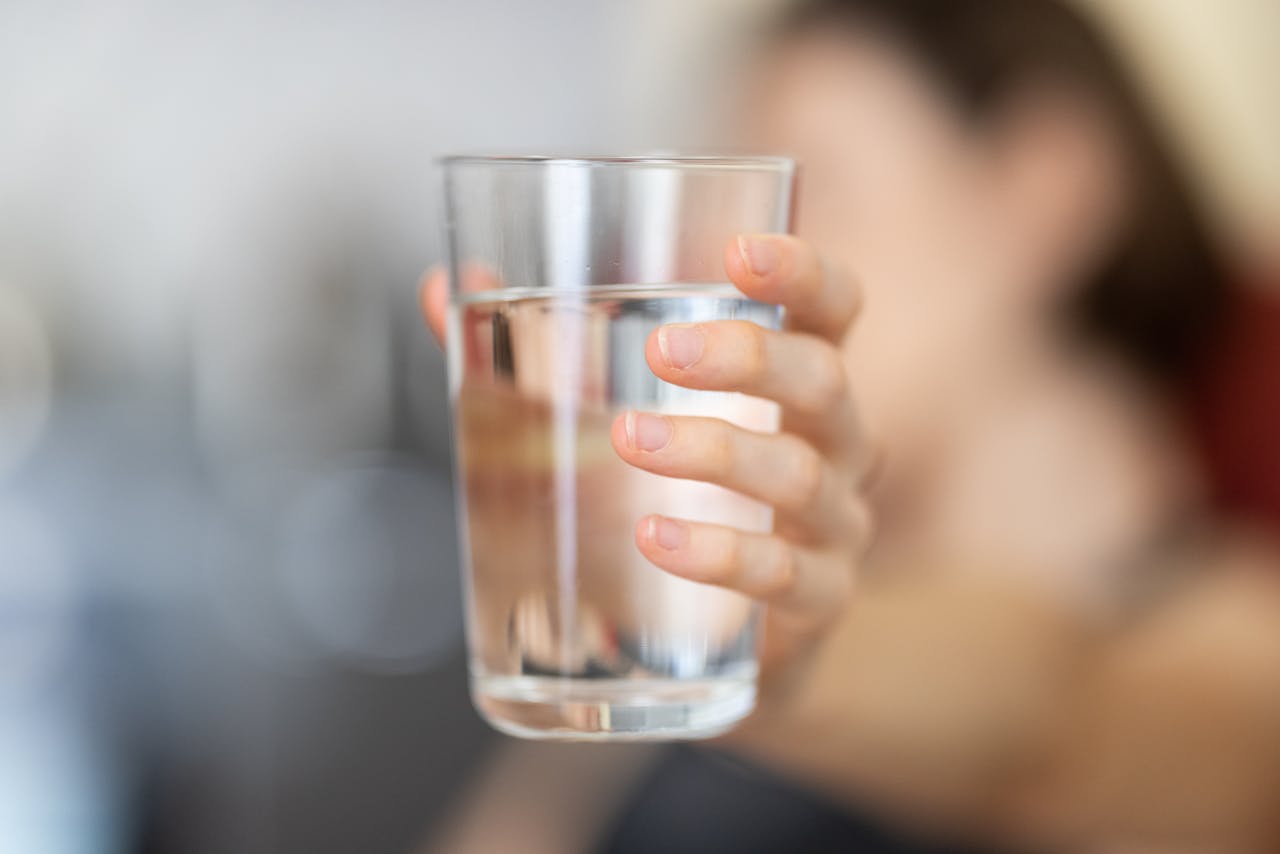The Role of Water in Hair and Scalp Health

Water is that simple, everyday element that plays a huge role in keeping our hair and scalp healthy but our focus is often on fancy shampoos, conditioners, or hair masks.
Water is essential for our bodies, and that includes our hair and scalp. Just like a plant needs water to grow strong and healthy, our hair needs water to look its best. In this article, we’ll dive into how water affects our hair and scalp health, from the inside out.
We’ll explore why staying hydrated is not just good for your body, but also for your hair. We’ll look at how water interacts with your hair when you wash it, and even how the quality of your water can make a difference. By the end, you’ll have a new appreciation for the role this simple substance plays in keeping your locks looking luscious.
The Structure of Hair and Its Relationship with Water
To understand how water affects our hair, we first need to know a bit about hair structure. Each hair on your head is like a tiny plant growing from your scalp.
Here’s a quick breakdown of hair structure:
- The root: This is the part beneath the scalp where hair growth begins.
- The shaft: This is the part we see and style, made up of three layers:
- Medulla: The soft, central part of the hair shaft
- Cortex: The middle layer that gives hair its strength and colour
- Cuticle: The outer layer that protects the inner layers
Now, here’s where water comes in. Hair is hygroscopic, which is a fancy way of saying it can absorb moisture from its surroundings. When hair absorbs water:
- It swells up and becomes more elastic
- The cuticle (outer layer) lifts slightly, allowing moisture to penetrate deeper
This ability to absorb water is why your hair might frizz on a humid day, or why it feels different when it’s wet versus dry. Understanding this relationship between hair and water is key to maintaining healthy, moisturised locks.
Hydration and Hair Health
Proper hydration isn’t just about drinking enough water (though that’s important too). It’s also about how moisture affects your hair directly. Here’s how water supports hair health:
- Hair Growth:
- Water helps deliver nutrients to hair follicles
- Proper hydration can help prevent a dry, flaky scalp that might hinder hair growth
- Hair Strength:
- Well-hydrated hair is less likely to become brittle and break
- Moisture helps maintain hair’s elasticity, so it can stretch without snapping
- Hair Appearance:
- Hydrated hair often looks shinier and feels softer
- Proper moisture can help reduce frizz and make hair more manageable
While external moisture (like water-based products) is important, internal hydration matters too. Drinking enough water helps ensure your body can deliver nutrients to your hair follicles, supporting healthy growth from the inside out.
Water and Scalp Health
Your scalp is like the soil from which your hair grows. Just as plants need healthy soil to thrive, your hair needs a healthy scalp. Water plays a big role in maintaining scalp health:
- Scalp Moisture Balance:
- A well-hydrated scalp is less likely to become dry and flaky
- Proper hydration helps maintain the natural oils that keep your scalp healthy
- Scalp Circulation:
- Staying hydrated helps improve blood circulation, including to your scalp
- Better circulation means more nutrients delivered to hair follicles
- Scalp Conditions:
- Proper hydration can help manage conditions like dandruff
- A moist scalp is less likely to become irritated or itchy
However, balance is key. Too much moisture can lead to a greasy scalp or even create an environment where fungi can thrive. That’s why it’s important to find the right balance for your individual scalp needs.
Water Quality and Hair Care
Not all water is created equal when it comes to hair care. The quality of water you use to wash your hair can have a big impact on its health and appearance:
- Hard Water:
- Contains high levels of minerals like calcium and magnesium
- Can leave a film on hair, making it feel dry and look dull
- May cause colour-treated hair to fade faster
- Soft Water:
- Contains fewer minerals
- Hair often feels softer and cleaner after washing
- Might make fine hair feel limp or greasy more quickly
- Chlorinated Water:
- Can strip hair of its natural oils
- May cause colour-treated hair to fade or change tone
- Can make hair feel dry and brittle over time
If you live in an area with hard water or heavily chlorinated water, you might consider:
- Using a shower filter to reduce minerals or chlorine
- Doing a final rinse with filtered water
- Using products designed to combat the effects of hard water
The water you wash with is just as important as the products you use. Paying attention to your water quality can make a big difference in your hair’s health and appearance.
Washing Hair: Finding the Right Balance
When it comes to washing your hair, it’s all about balance. Too much washing can strip your hair of natural oils, while too little can lead to buildup and scalp issues. Here’s what you need to know:
- Frequency:
- There’s no one-size-fits-all rule for how often to wash your hair
- It depends on your hair type, lifestyle, and personal preference
- Some people need to wash daily, others can go a week between washes
- Water Temperature:
- Lukewarm water is generally best for washing hair
- Hot water can strip away natural oils and irritate your scalp
- A cool final rinse can help close the hair cuticle, adding shine
- Technique:
- Focus on cleaning your scalp, not just your hair
- Gently massage your scalp with your fingertips, don’t scratch with your nails
- Rinse thoroughly to remove all shampoo and conditioner
The goal is to clean your hair and scalp without overdoing it. Pay attention to how your hair looks and feels to find the right washing routine for you.
Deep Hydration Treatments for Hair
Sometimes your hair needs an extra boost of moisture. That’s where deep hydration treatments come in. These can help restore moisture to dry, damaged, or over-processed hair.
Types of Hydrating Treatments:
- Leave-in conditioners: Light, daily moisture boost
- Deep conditioning masks: Intense hydration, used weekly or bi-weekly
- Hot oil treatments: Help seal moisture into the hair shaft
DIY Water-Based Hair Mask:
Here’s a simple mask you can make at home:
- Mix 1 ripe avocado, 2 tablespoons of honey, and 2 tablespoons of olive oil
- Apply to damp hair, focusing on ends
- Cover with a shower cap and leave for 30 minutes
- Rinse thoroughly with cool water
Even the best hydration treatments won’t work if your hair is coated with product buildup. Consider using a clarifying shampoo occasionally to remove buildup and allow treatments to penetrate better.
Drinking Water for Hair Health
What you put into your body affects your hair just as much as what you put on it. Drinking enough water is crucial for overall health, including the health of your hair.
How Internal Hydration Affects Hair:
- Helps deliver nutrients to hair follicles
- Supports healthy hair growth
- Helps maintain scalp health
Recommended Daily Intake:
- Aim for about 8 glasses of water per day
- Your needs may vary based on climate, activity level, and overall health
- Other beverages count, but plain water is best
Signs You’re Not Drinking Enough:
- Dry, brittle hair
- Slow hair growth
- Increased hair shedding
While drinking water is important, it’s not a magic solution. It works best as part of an overall healthy diet and lifestyle.
Signs of Dehydrated Hair and Scalp
Recognizing the signs of dehydration in your hair and scalp can help you address issues before they become serious problems.
Common Symptoms of Insufficient Hydration:
- Dry, brittle hair that breaks easily
- Lack of shine or lustre
- Increased frizz and flyaways
- Scalp itchiness or flakiness
- Hair that feels “crunchy” or straw-like
How to Assess Your Hair’s Moisture Levels:
- The stretch test: Take a strand of hair and gently stretch it. If it breaks immediately, it might be lacking moisture
- The float test: Put a strand of hair in a glass of water. If it sinks quickly, it’s likely porous and in need of moisture
If you notice these signs, it’s time to up your hydration game, both internally and externally.
Balancing Water with Other Hair Care Practices
While water is crucial for hair health, it works best when balanced with other good hair care practices.
Nutrition for Hair Health:
- Eat a balanced diet rich in proteins, vitamins, and minerals
- Foods like eggs, nuts, fish, and leafy greens can support hair health
- Consider supplements if you have specific deficiencies (consult with a doctor first)
Protecting Hair from Water Loss:
- Use leave-in conditioners or oils to seal in moisture after washing
- Avoid heat styling tools when possible, or use a heat protectant product
- Wear a wide-brimmed hat or use UV-protectant products in the sun to prevent moisture loss.
Balancing Protein and Moisture:
- Hair needs both protein and moisture to be healthy
- Too much protein can make hair brittle, while too much moisture can make it limp
- Pay attention to how your hair responds to different treatments and adjust accordingly
Everyone’s hair is different. What works for one person might not work for another. The key is to pay attention to your hair’s needs and adjust your routine as necessary.
Special Considerations for Different Hair Types
Just as people come in all shapes and sizes, so does hair. Different hair types have different needs when it comes to hydration and water interaction.
- Curly Hair:
- Tends to be naturally drier and more prone to frizz
- Benefits from more frequent deep conditioning treatments
- May need less frequent washing to maintain natural oils
- Straight Hair:
- Can become oily more quickly due to easier sebum distribution
- Might need more frequent washing
- Can benefit from lightweight hydration methods to avoid weighing hair down
- Fine Hair:
- Can easily become weighed down by heavy moisturising products
- Might need more frequent washing due to quicker oil buildup
- Benefits from volumizing products that also provide light hydration
- Thick Hair:
- Often requires more product and water to fully saturate
- May benefit from pre-shampoo treatments to help water and products penetrate
- Might need longer drying times to prevent dampness at the roots
At AquaMaya, we understand that access to clean water is crucial not just for drinking, but for overall health and hygiene, including hair care. In many parts of West Africa where we work, people often have to choose between using limited water for drinking or for personal care. By providing clean water access, we’re not just improving health outcomes, but also enabling better personal care practices that contribute to dignity and self-esteem.
Conclusion
Water truly is the foundation of hair and scalp health. From the inside out, proper hydration supports strong, healthy hair growth and helps maintain a balanced scalp environment. Externally, how we use water in our hair care routines can make a big difference in the look and feel of our locks.
Key takeaways:
- Stay hydrated by drinking enough water daily
- Use lukewarm water when washing your hair
- Consider your water quality and how it might affect your hair
- Choose hydrating hair products appropriate for your hair type
- Pay attention to your hair’s unique needs and adjust your routine accordingly
As we at AquaMaya work to bring clean water to communities in West Africa, we’re constantly reminded of how fundamental water is to all aspects of health and wellbeing. Access to clean water doesn’t just mean safe drinking water, it means having the resources for proper hygiene, including hair and scalp care.
Our mission to deliver clean water access to 10 million people in West Africa goes beyond just quenching thirst. It’s about providing the foundation for overall health, hygiene, and dignity. When people have access to clean water, they can not only stay healthy but also take better care of themselves, including their hair and scalp.
We invite you to think about the role of water in your own hair care routine, and to consider how you might support efforts to bring clean water to those who lack access. Whether it’s being mindful of your water usage, supporting water conservation efforts, or contributing to organisations like AquaMaya, every action counts.
Don’t forget, having healthy hair starts with clean, accessible water – something we believe should be available to everyone. By working together, we can create a world where everyone has the water they need not just to survive, but to thrive, from their inner health to the health of their hair.
Sources:
- https://www.newimagehairclinic.com/blog/the-benefits-of-drinking-water-for-hair.html#gref
- https://www.theindependentpharmacy.co.uk/hair-loss/guides/understanding-how-dehydration-affects-your-hair
- https://longsecowater.com/blog/how-your-water-affects-your-hair
- https://www.harleystreethairtransplant.co.uk/hair-structure/
- https://www.lotusbotanicals.com/blogs/news/sun-protection-for-hair-the-importance-of-using-spf-hair-products
- https://www.heycurls.com/blogs/thehue/protein-or-moisture
- https://www.healthline.com/health/beauty-skin-care/how-often-should-you-wash-your-hair#factors






